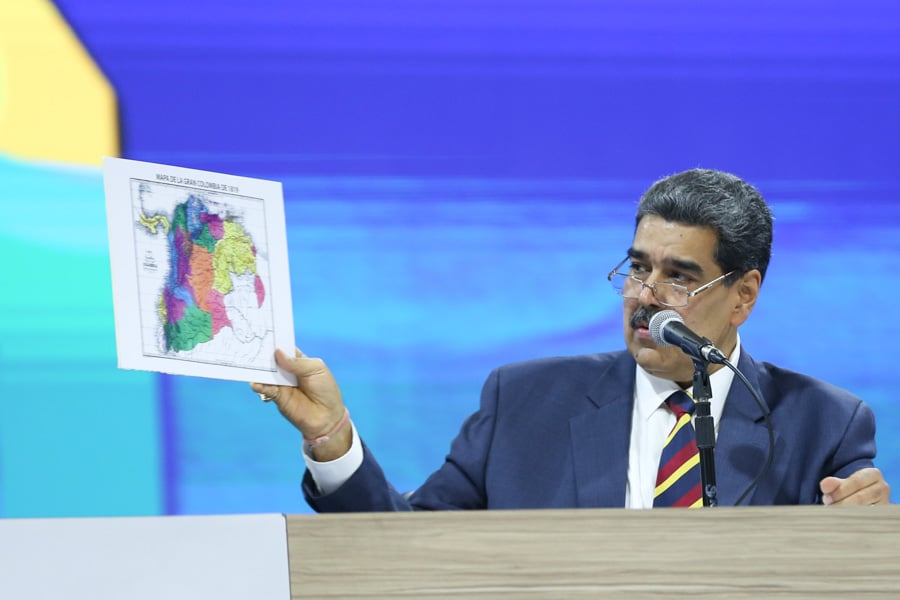
The Venezuelan government has strongly criticized Guyana for allegedly facilitating the establishment of U.S. military bases in the disputed Essequibo region. This accusation was conveyed through a statement from Venezuelan Ambassador to Trinidad and Tobago, Álvaro Enrique Sánchez Cordero.
Venezuela asserts that Guyana’s collaboration with Exxon Mobil in oil exploration rights in a disputed maritime area is a threat to regional peace. The Venezuelan release claims that Guyanese President Dr. Irfaan Ali has recklessly approved the presence of the United States Southern Command in Essequibo, a decision that Venezuela perceives as a direct threat.
In response, Venezuela advocates for direct dialogue under the 1966 Geneva Agreement, urging the Guyanese government to refrain from actions deemed erratic and threatening.
Concurrently, a conversation between Guyana’s Foreign Minister Hugh Todd and Venezuela’s Foreign Minister Yvan Gil was confirmed, focusing on the territorial controversy. Venezuela used this dialogue to emphasize the significant participation in its consultative referendum, which mandates Venezuelan institutions to adhere to the Geneva Agreement for resolving the territorial dispute.
Despite a recent ruling by the International Court of Justice (ICJ) ordering Venezuela not to interfere with Guyana’s administration of Essequibo, Venezuela has declared non-recognition of the ICJ’s jurisdiction. The ICJ ruling came in the context of Essequibo constituting over two-thirds of Guyanese territory.
Venezuela’s stance is rooted in the 1966 Geneva Agreement, which stipulates referral to an international organ agreed upon by both parties or the United Nations Secretary-General if the dispute is not resolved peacefully. Guyana has sought ICJ intervention in line with this agreement.
This territorial dispute has garnered international attention and support for Guyana, including from CARICOM, Brazil, the United States, and the United Nations. The situation has raised concerns in the Caribbean, with experts contemplating the possibility of escalated conflict, potentially leading to war.



 and then
and then